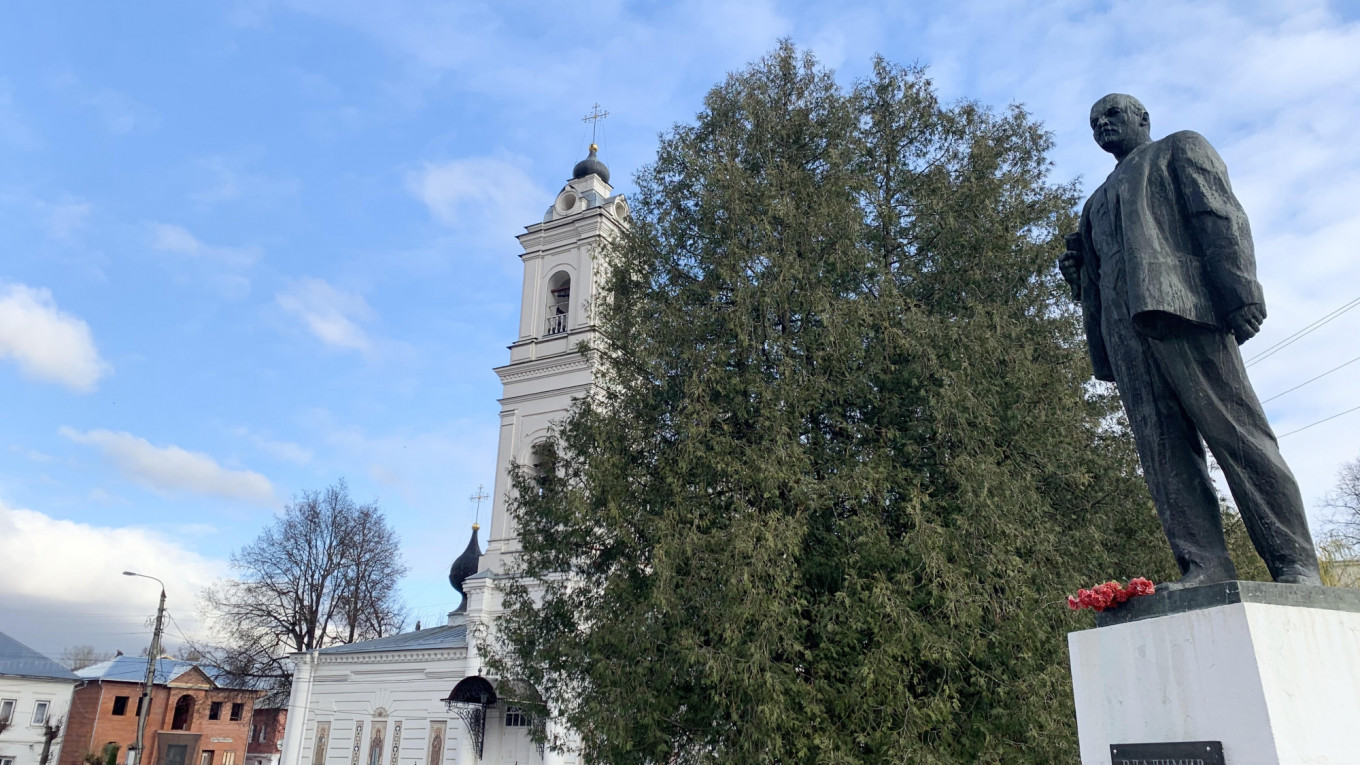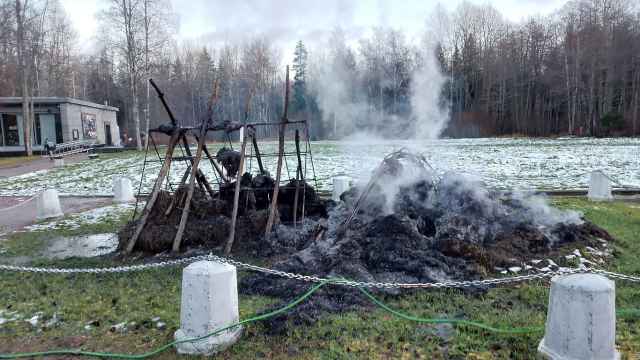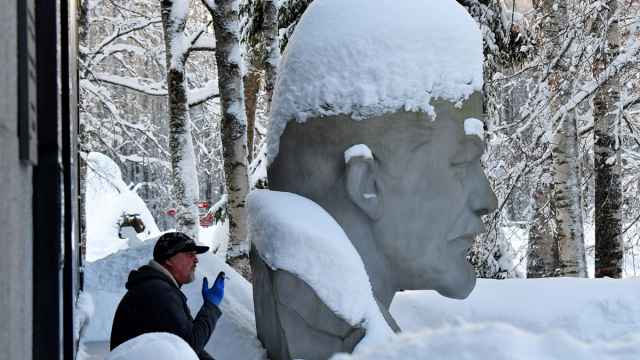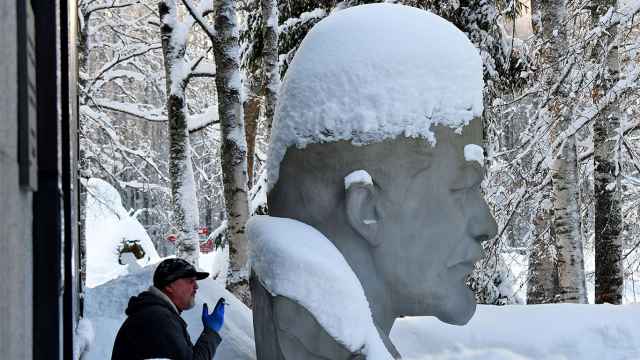In a cramped office decorated with posters of Stalin, a veteran Communist Party member addresses a group of concerned citizens, banging his fist on a desk.“Friends, we are at war,” Alexander Golovanov declares.
“They want to take away our history and pride.”
The ancient town of Tarusa, 140 kilometers south of Moscow, still has a statue of Lenin in its central square, and until recently its communist party headquarters were located on Lenin Street. But in October, the town council voted to replace the Soviet-era names of 15 streets and one square with pre-revolutionary names, splitting opinion and dredging up Russia’s complicated relationship with its past.
Lenin Street is now Kaluzhskaya Street, a reference to the surrounding region. Other streets named after communist leaders including Anatoly Lunacharsky and Marxist revolutionaries like Rosa Luxemburg have also been renamed.
“We wanted to show that our town is more than just its Soviet history, it has a longstanding culture going back over 700 years”, Sergei Manakov, a local deputy from the ruling United Russia party who voted in favor of changing the street names told The Moscow Times.
“You can find a street named after Lenin in every corner of Russia. This way we stand out.”
According to research conducted by Yandex in October 2017, there are 5,776 streets in Russia named after Lenin. Tarusa isn’t the only place in Russia to have renamed them. Moscow and St.Petersburg — formerly known as Leningrad — changed many street names honoring communist leaders in the early 1990s.
However, what is currently happening in Tarusa runs against recent “state-directed trends,” said Andrei Kolesnikov of the Moscow Carnegie Center. He pointed to the fact Russians have expressed increasingly positive opinions about the Soviet Union over the years, with nostalgia toward the U.S.S.R. and approval of Stalin hitting record highs in the past year or so.
Three out of four Russians think the Soviet era was the best time in their country’s history, according to a March survey by independent Levada Center pollster.
Tarusa’s decision to de-sovietize its streets has polarized its 10,000 inhabitants.
Sergei Yelizarov, another deputy who was instrumental in the renamings said he hoped the switch would lead to a “shift in thinking among our residents.”
“When walking the streets, we want Turasian’s to identify with our town and not with an ideology that is long gone”
Both Manakov and Yelizarov stressed that the renaming of the streets only applies to the old town and there is “absolutely no talk” of tearing down the Lenin statue that dominates the newer central square of Tarusa.
Nevertheless, the town’s decision has enraged Russia’s longtime Communist Party leader Gennady Zyuganov who called the new law “a humiliation of the great Soviet era.
“Tarusian officials have followed the path of Bandera, the Nazis and fascists,” Zyuganov said, referencing a Ukrainian early-twentieth-century ultranationalist leader. He warned that the town was on the brink of the large-scale decommunization seen in Ukraine since 2015, a process that is frequently criticized by Russian state media and officials.
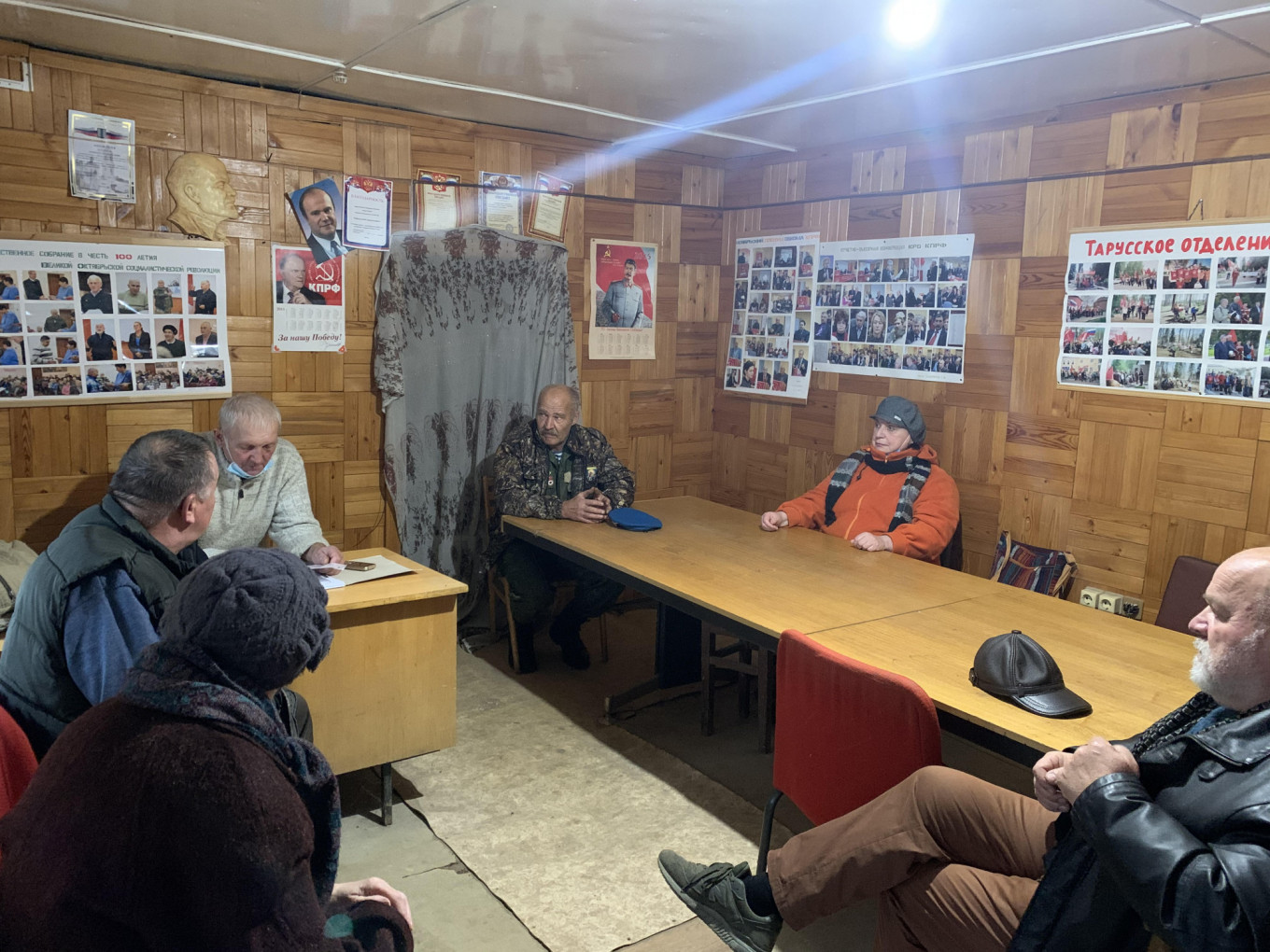
As no referendum has been held on the name changes in Tarusa, both those in favor and those against say most locals were on their side. A recent unscientific online poll on the issue showed that the vote was roughly split evenly amongst those who participated.
Some of the town’s more senior residents who spoke to The Moscow Times echoed Zyuganov’s sentiments.
Afghan war veteran Ivan Kuzenkov said he felt his war efforts were being erased. He also expressed worry that community funds were being misdirected.
“We spent money on this when we no longer have a public banya in the town,” Kuzenkov said, referring to the traditional Russian communal bathhouse.
Others, like Anastasia Zubaleyeva, a barista at a local coffee shop, said she did not care about the changes as long as they would not cost her anything.
Tarusian officials have said that a few local businessmen have covered the 300,000 ruble ($3,900) cost of changing the street signs, and stress that all of the administrative issues that come with the new names will be handled cost-free by the local government.
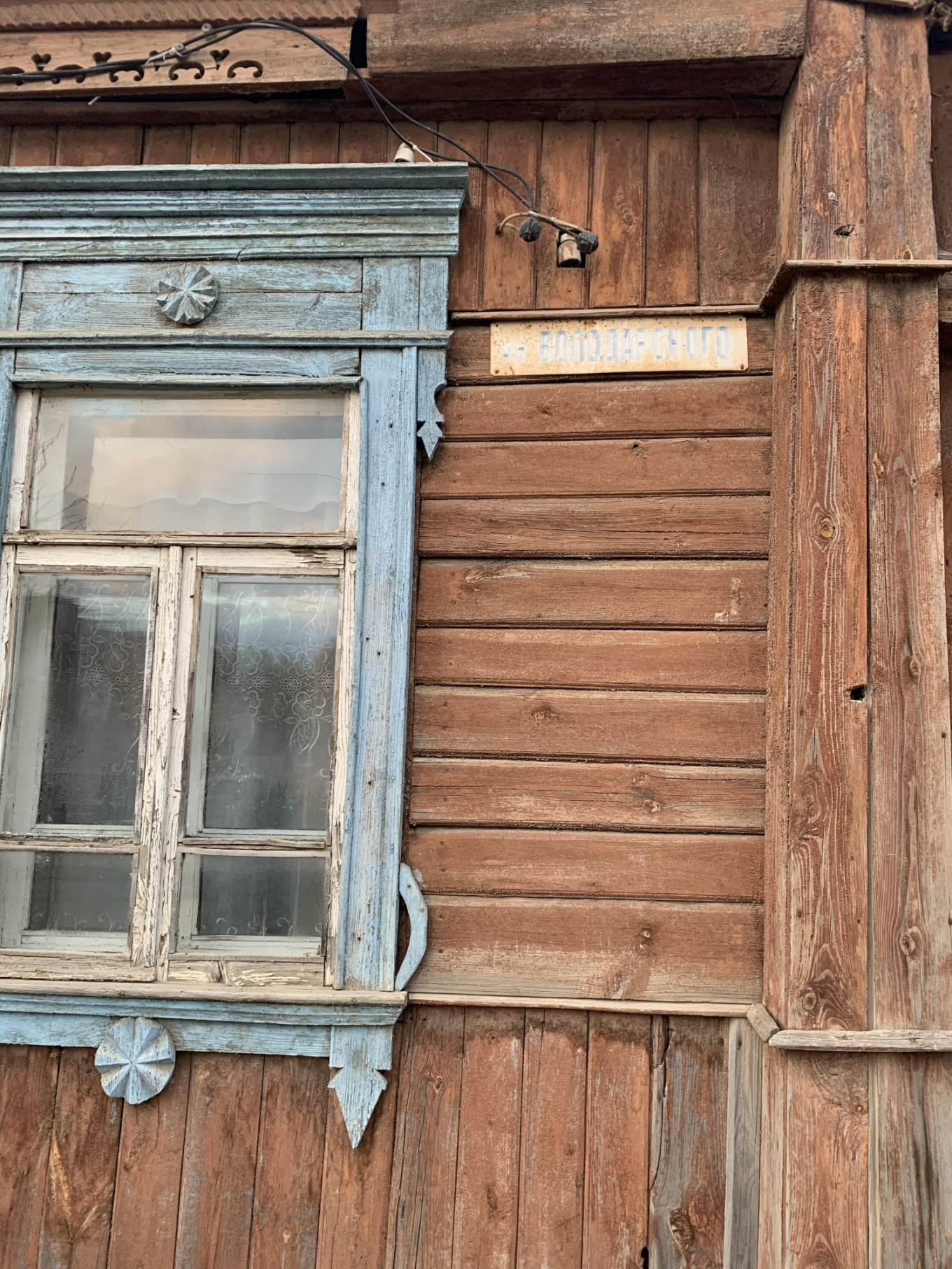
Tarusa’s picturesque setting on the banks of the Oka River has made it a haven for Russian writers and over the years, including the renowned Soviet writer Konstantin Paustovsky and poet Marina Tsvetaeva.
It also became the place where many dissidents and people repressed by the Soviet authorities settled.
To this day, many of the dachas, or country houses, dotted along the river are occupied by cultural figures.
Unsurprisingly, the liberal-minded local intelligentsia have welcomed the name change.
“This is a rare example of officials actually doing something positive for us on their own initiative. I am glad it finally happened,” said Maxim Osipov, a writer and cardiologist who was recently profiled in The New Yorker magazine.
“If it was up to me, I would remove the statue of Lenin as well,” he added.
Osipov said that those in favor of the new names included an unlikely mix of local liberal artists, Orthodox clergy and right-leaning conservatives and monarchists.
Pointing to the variety of views on the topic, deputies Manakov and Yelizarov said they could not listen to everyone’s opinion, and decided to push through the changes, given their mandate as elected officials.
They added that there was little discussion within their constituency about the decision to change the street names and said they believe much of the discontent is rooted in that.
“Those who aren’t happy with the changes are just angry they weren't consulted,” Yelizarov said.

While Tarusa is erasing its communist past, other towns and cities across the country are experiencing a newfound enthusiasm for Soviet symbols and statues.
In May, local communists in Russia’s third-largest city Novosibirsk unveiled a statue of Josef Stalin in the center of the city. And last week, St. Petersburg experienced its own signage controversy when the managers of a prominent historic apartment building in downtown St. Petersburg removed 16 plaques commemorating residents who had been arrested and killed during Stalin’s Great Terror in the 1930s.
“What happened in Tarusa shows that not everything in this country can be painted with the same brush,” Kolesnikov said.
“People are able to have autonomy over their own futures and pasts.”
A Message from The Moscow Times:
Dear readers,
We are facing unprecedented challenges. Russia's Prosecutor General's Office has designated The Moscow Times as an "undesirable" organization, criminalizing our work and putting our staff at risk of prosecution. This follows our earlier unjust labeling as a "foreign agent."
These actions are direct attempts to silence independent journalism in Russia. The authorities claim our work "discredits the decisions of the Russian leadership." We see things differently: we strive to provide accurate, unbiased reporting on Russia.
We, the journalists of The Moscow Times, refuse to be silenced. But to continue our work, we need your help.
Your support, no matter how small, makes a world of difference. If you can, please support us monthly starting from just $2. It's quick to set up, and every contribution makes a significant impact.
By supporting The Moscow Times, you're defending open, independent journalism in the face of repression. Thank you for standing with us.
Remind me later.



